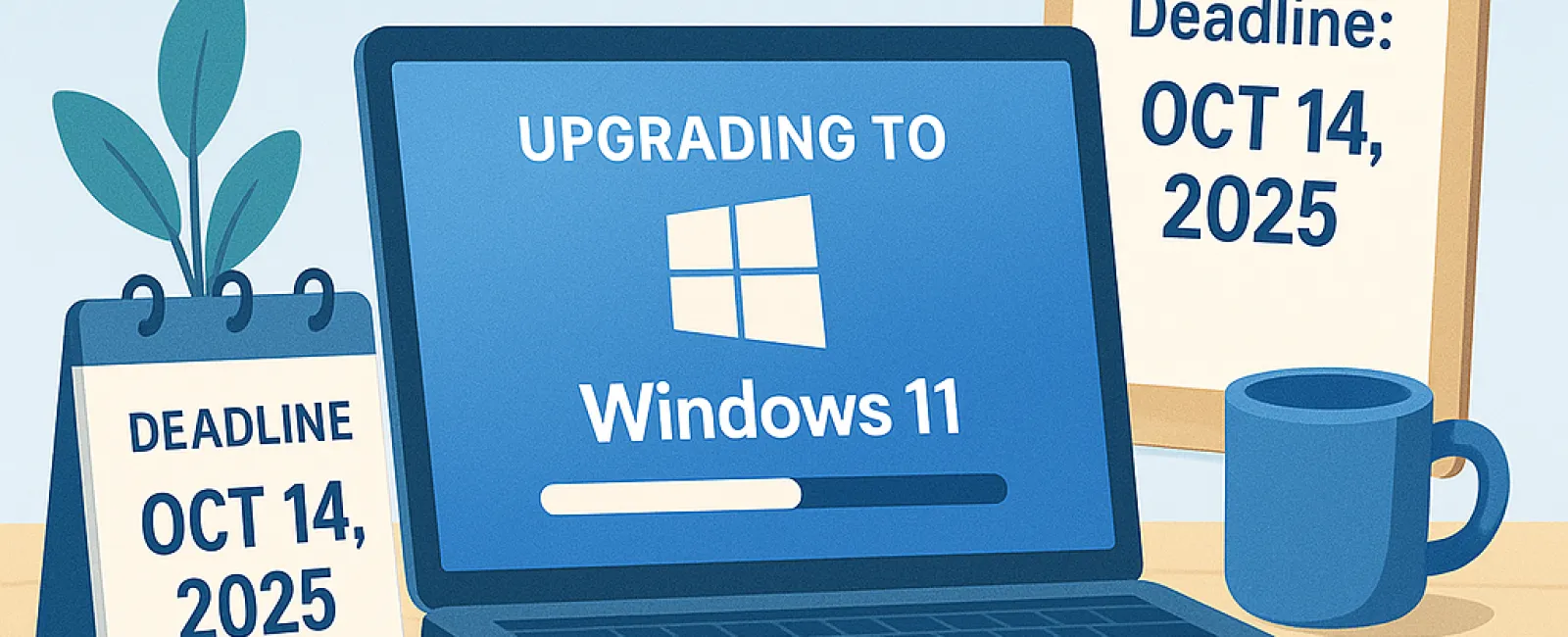June 23, 2025
If your business is still running on Windows 10, it's time to act.
Microsoft will officially end support for Windows 10 on October 14, 2025. After this date, there will be no more security updates, bug fixes, or technical assistance.
More importantly, business owners need to realize: delaying the upgrade isn't just a future problem.
It's about the immediate risks and costs you face by waiting.
"We'll Deal With It Later" Could Cost Your Business Big
We understand—upgrading every device can seem overwhelming and costly. Putting it off feels easier until something goes wrong.
But here's the real price of procrastination:
1. Operating Without Protection
Once Windows 10 updates stop, your systems become vulnerable to every new security threat.
Cybercriminals target outdated software because it's easier to exploit—like locking your front door but leaving windows wide open.
A single breach could cost thousands or even jeopardize your entire business.
2. Compatibility Problems with Software and Hardware
Many essential business applications—accounting software, CRMs, and industry-specific programs—are already dropping support for Windows 10.
If your system fails during critical projects or client presentations, the cost can be significant.
It's not just software; new printers, peripherals, and security devices may also become incompatible.
3. Declining Productivity
Older systems run slower, crash more often, and frustrate your team. Even minor delays add up, hurting efficiency, morale, and your competitive edge.
If each employee loses 10-15 minutes daily due to tech issues, imagine the impact over a month.
4. Emergency Upgrades Are Costlier
Waiting until systems fail triggers panic-driven expenses:
● Emergency hardware purchases
● Rush IT service fees
● Business downtime during replacements
Planning ahead now prevents costly last-minute scrambles.
5. Risk of Compliance Breaches
If your business handles sensitive info or follows regulations like HIPAA or PCI-DSS, unsupported systems could lead to fines or legal trouble. Updated security is mandatory, and Windows 10 won't meet standards after October.
What Proactive Business Owners Are Doing Today
Smart companies aren't just upgrading devices—they're using this change to:
● Evaluate which devices need replacement
● Optimize their software and toolsets
● Strengthen cybersecurity defenses
● Strategically plan IT budgets for 2025 and beyond
Steps to Ensure a Seamless Upgrade
Follow these recommendations:
● Perform compatibility assessments - Identify which machines can run Windows 11 and which need replacing.
● Review your software - Confirm all essential applications are compatible with Windows 11 or newer.
● Plan your hardware budget early - Avoid supply chain delays.
● Partner with a trusted IT provider - Let experts manage the transition smoothly with no downtime or surprises.
Don't Wait Until October to Act
Delaying the upgrade will only increase costs, stress, and missed opportunities. We're here to help small businesses make a smart, seamless, and future-proof transition.
Click here or call us at 877-310-0123 to schedule your FREE 15-Minute Discovery Call. We'll help you identify what needs upgrading, what can stay, and create a transition plan that keeps your business running smoothly before the deadline.





